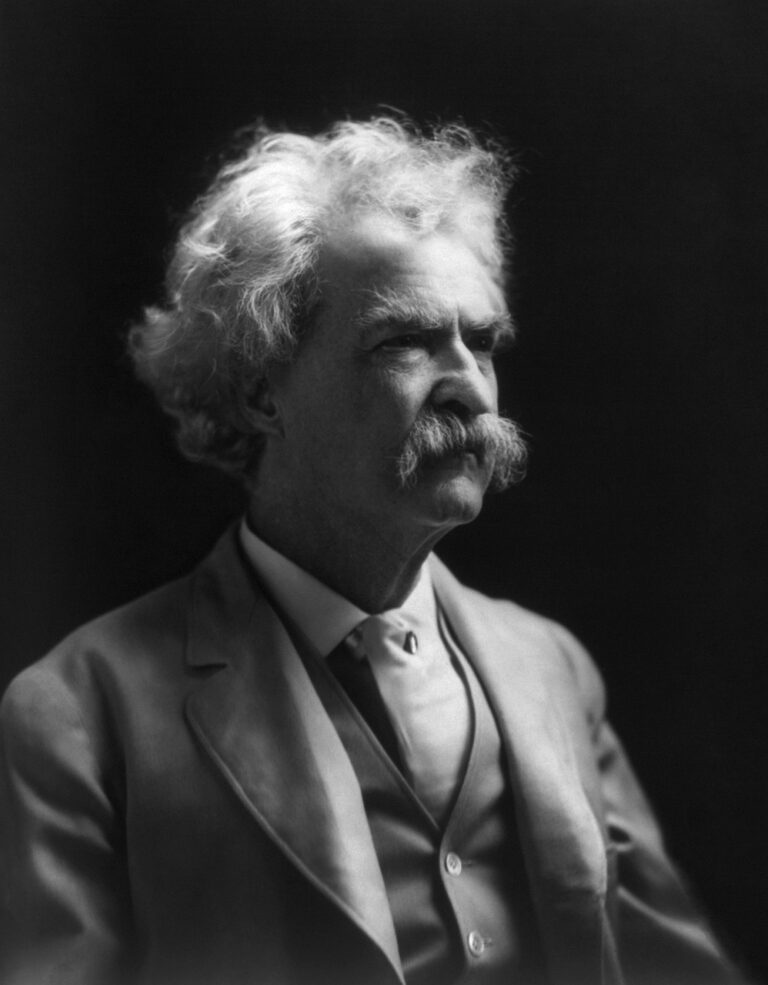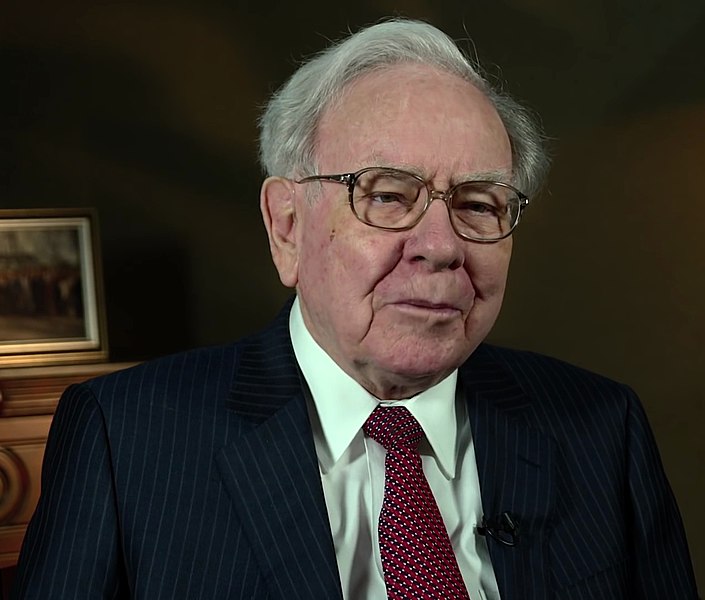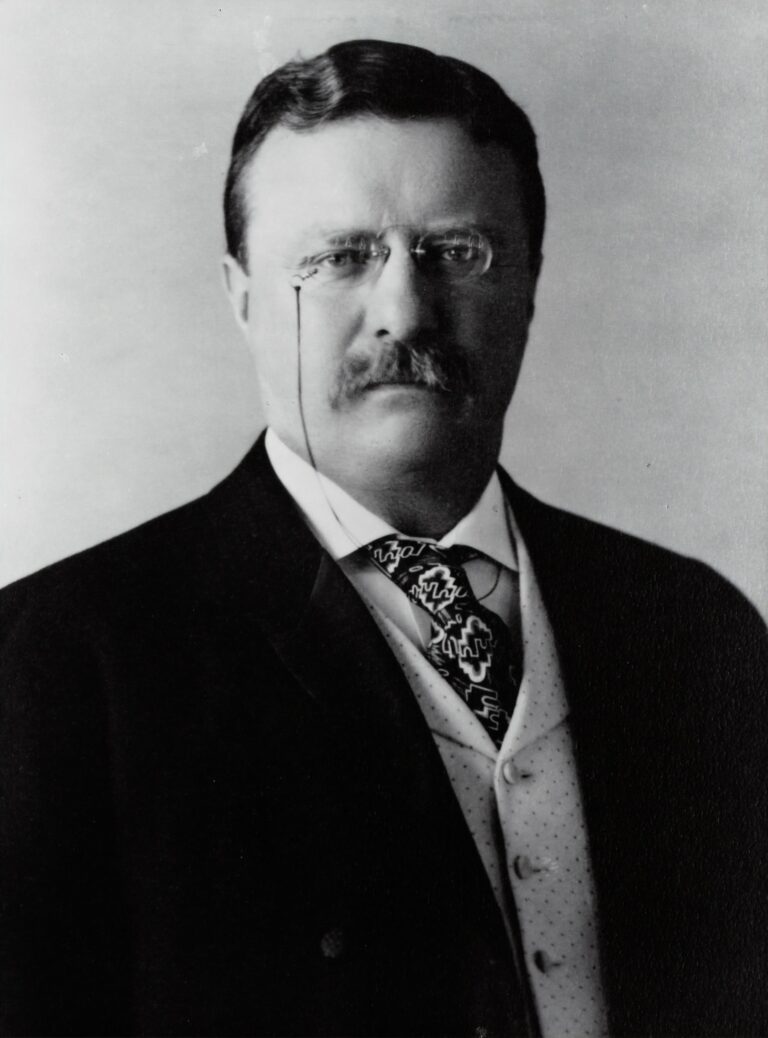Walton’s Way: Unveiling the Leadership Legacy of Sam Walton

Leading with Vision: Exploring the Remarkable Career of Sam Walton
Enduring impact of Sam Walton on the business world
In the annals of business history, there are only a handful of names that have left an indelible mark on the global landscape. One such luminary is Sam Walton, a visionary leader whose influence can still be felt today, long after his passing. With an unyielding passion for retail and an unmatched drive to succeed, Walton revolutionized the industry and built an empire that has become synonymous with success: Walmart. However, Sam Walton’s legacy extends far beyond the realm of retail; his leadership philosophy and innovative strategies continue to inspire and shape the minds of leaders across diverse sectors.
Sam Walton and his role as a legendary leader
Born on March 29, 1918, in Kingfisher, Oklahoma, Sam Walton was destined to become a game-changer in the business world. From his humble beginnings, Walton cultivated a relentless work ethic and a hunger for knowledge that propelled him forward. With a razor-sharp mind and an insatiable curiosity, he navigated the complexities of the retail industry and transformed it in ways no one could have imagined.
Sam Walton’s name is synonymous with Walmart, the retail giant that he founded in 1962. Under his guidance, Walmart grew from a single store in Rogers, Arkansas, to a global powerhouse with thousands of locations spread across the globe. However, what set Walton apart was not just the sheer size of his empire but his unwavering commitment to his employees, customers, and communities.
Leadership lessons and stories from Sam Walton’s remarkable career that continue to resonate and inspire leaders today.
In this comprehensive article, we delve into the leadership journey of Sam Walton, uncovering the profound insights and timeless lessons that defined his approach to leadership. With over 40 years of experience in the field of leadership development, it is through this lens that we examine the strategies, philosophies, and personal stories that made Walton an exceptional leader. From his early years, shaped by humble beginnings and a relentless pursuit of excellence, to his establishment of a people-centric culture at Walmart, we explore how Walton’s unique leadership style shaped his organization’s success.
Through a series of captivating anecdotes and astute observations, we discover Walton’s visionary approach to retail, his unwavering commitment to his employees’ well-being, and his tireless efforts to empower others. We also reflect on the invaluable lessons he learned from failure and the profound impact he had on the communities he served. By uncovering the essence of Walton’s leadership legacy, we aim to provide readers with actionable insights and inspiration that can be applied to their own leadership journeys, regardless of industry or context.
As we embark on this exploration of Sam Walton’s leadership prowess, we are reminded that great leaders are not defined solely by their accomplishments but by the principles they uphold and the impact they have on the lives of others. Sam Walton’s enduring legacy is a testament to the power of unwavering dedication, resilience, and an unwavering belief in the potential of both individuals and organizations. Join us on this enlightening journey as we uncover the leadership lessons and stories of Sam Walton, a true icon whose influence reverberates through the corridors of business history.
The Early Years: Shaping the Foundation
Background of Sam Walton’s upbringing and early experiences
To truly understand the exceptional leadership qualities that Sam Walton possessed, we must delve into his formative years. Walton was born into a family that instilled in him the values of hard work, perseverance, and humility. Growing up during the Great Depression, he witnessed the struggles and hardships that shaped his worldview and ignited his ambition.
Raised in a small town in Missouri, Walton began his entrepreneurial journey at a young age. He developed a passion for business early on, selling everything from magazines to milk delivery routes. These experiences honed his instincts and provided him with valuable lessons in customer service and the art of negotiation.
Importance of humility, hard work, and perseverance
One of the defining traits of Sam Walton was his unwavering humility, which remained a cornerstone of his leadership philosophy throughout his life. Despite his monumental success, he never lost touch with his roots or the people around him. This humility allowed him to build genuine connections with his employees, customers, and suppliers—a crucial element of his leadership style.
Walton’s relentless work ethic was evident in every aspect of his life. He believed in leading by example, often rolling up his sleeves and diving into the day-to-day operations of his stores. This hands-on approach not only endeared him to his employees but also provided him with invaluable insights into the intricacies of his business.
Perseverance was another key characteristic that defined Walton’s early years. He faced numerous setbacks and failures along the way, but instead of letting them deter him, he viewed them as opportunities for growth. Walton believed that failure was a necessary part of the journey to success, and he used each setback as a stepping stone to achieve greater heights.
Walton’s ability to learn from failures and adapt to challenges
Sam Walton’s early experiences taught him the invaluable lesson of resilience in the face of adversity. One of his notable setbacks came when his first retail store, a Ben Franklin franchise, was forced to close due to a lease dispute. Rather than succumbing to defeat, Walton embraced the opportunity to reimagine his business approach.
It was during this period of reflection that Walton developed the concept of discount retailing—a game-changing strategy that would disrupt the traditional retail industry. He saw the potential to offer customers everyday low prices by leveraging economies of scale and streamlining operations. This innovative approach marked the birth of Walmart and laid the foundation for its remarkable success.
Walton’s ability to adapt to challenges extended beyond pricing strategies. He recognized the transformative power of technology and implemented cutting-edge systems to optimize inventory management, supply chain operations, and store efficiency. His commitment to staying ahead of the curve allowed Walmart to continually evolve and maintain its competitive edge.
Sam Walton’s early years shaped the leader he would become—a leader driven by humility, a tireless work ethic, and an unwavering commitment to learning from failures. These foundational experiences laid the groundwork for the exceptional leadership that would propel Walmart to unprecedented heights. Join us as we delve deeper into the extraordinary journey of Sam Walton and explore the profound leadership lessons he imparted along the way.
The Birth of Walmart: Visionary Leadership in Action
Creation of Walmart and its exponential growth under Walton’s leadership
The birth of Walmart marked a pivotal moment not only in Sam Walton’s career but also in the history of retail. In 1962, Walton opened the first Walmart store in Rogers, Arkansas, with a clear vision in mind—to provide customers with affordable products and unparalleled customer service. Little did he know that this small venture would set in motion a retail revolution.
From the very beginning, Walton’s leadership was characterized by a relentless pursuit of innovation and a deep understanding of customer needs. He realized that by catering to the evolving demands of consumers, he could differentiate Walmart from its competitors. Through astute market research and a keen eye for emerging trends, Walton identified the potential for discount retailing to disrupt the industry and meet the needs of cost-conscious customers.
Walton’s innovative strategies, such as discount retailing and supply chain management
The introduction of discount retailing was a pivotal moment that defined Sam Walton’s visionary leadership. He believed that by leveraging economies of scale and efficient operations, Walmart could offer everyday low prices that would attract a wide customer base. This strategy not only revolutionized the retail landscape but also democratized access to quality products for millions of consumers.
Furthermore, Walton understood the critical role that supply chain management played in Walmart’s success. He recognized that optimizing the flow of products from suppliers to store shelves was instrumental in maintaining low prices and superior customer service. To achieve this, he established strong relationships with suppliers, implemented advanced inventory control systems, and streamlined distribution channels. These measures ensured that Walmart stores were consistently well-stocked, reducing out-of-stock situations and enhancing customer satisfaction.
Walton’s emphasis on efficiency and cost savings extended beyond the four walls of the store. He pioneered the concept of building large stores in rural areas, strategically locating them near distribution centers to minimize transportation costs. This approach not only allowed Walmart to reach previously underserved markets but also ensured that customers had access to a wide range of products at affordable prices.
Ability to identify and capitalize on emerging market trends
Another testament to Sam Walton’s visionary leadership was his ability to identify and capitalize on emerging market trends. He understood that the retail industry was dynamic, constantly evolving, and driven by consumer preferences. By staying attuned to market changes and being open to experimentation, he kept Walmart at the forefront of innovation.
For example, Walton recognized the potential of opening Walmart Supercenters—combining traditional discount retailing with a full-scale grocery store. This pioneering concept not only provided customers with a one-stop shopping experience but also allowed Walmart to diversify its offerings and cater to a wider demographic.
Walton’s prescience also led to Walmart’s foray into international markets. He understood the potential for global expansion and recognized that the Walmart model could be successfully replicated in other countries. Through strategic partnerships, acquisitions, and a deep understanding of local cultures, Walmart expanded its footprint internationally, becoming a truly global retail powerhouse.
Sam Walton’s visionary leadership transformed Walmart from a single store to a retail giant, challenging industry norms and reshaping consumer expectations. His innovative strategies, such as discount retailing, supply chain management, and global expansion, laid the groundwork for Walmart’s exponential growth. Join us as we explore further into the leadership approach of Sam Walton and uncover the people-centric culture he fostered within Walmart, setting it apart from its competitors and leaving an indelible mark on the retail industry.
People-Centric Leadership: Building a Culture of Excellence
Walton’s emphasis on valuing employees and fostering a sense of teamwork
One of the hallmarks of Sam Walton’s leadership was his unwavering belief in the power of people. He understood that the success of Walmart relied heavily on the dedication and passion of its employees. To foster a culture of excellence, Walton prioritized the well-being and development of his workforce.
Walton was known for his accessibility and genuine interest in the lives of his employees. He would regularly visit stores, engaging in conversations with associates, listening to their ideas, and addressing their concerns. This approach not only made employees feel valued and heard but also created a sense of camaraderie and loyalty throughout the organization.
Recognizing that motivated and engaged employees were key to delivering exceptional customer service, Walton introduced various employee benefits and incentive programs. He implemented profit-sharing plans, where employees had a stake in the company’s success, fostering a sense of ownership and commitment. Moreover, he encouraged a participatory management style, empowering employees to make decisions and contribute their unique insights to improve operations.
Commitment to customer service and creating a positive shopping experience
Sam Walton understood that the success of Walmart hinged on the satisfaction of its customers. He believed in creating a positive shopping experience that exceeded customer expectations, which in turn would drive loyalty and word-of-mouth recommendations.
Walton constantly emphasized the importance of customer service to his employees. He encouraged them to go the extra mile, greeting customers with a smile, and offering assistance whenever needed. Walton believed that every customer interaction was an opportunity to make a lasting impression and build long-term relationships.
To ensure consistent service excellence across all Walmart locations, Walton introduced training programs and initiatives focused on customer-centricity. He understood that investing in the development of his employees’ skills and knowledge would directly impact the quality of service provided. This emphasis on customer service became deeply ingrained in the Walmart culture, shaping the way associates interacted with customers and fostering a reputation for attentive, friendly service.
Walton’s hands-on approach and commitment to leading by example
Sam Walton’s leadership was characterized by a hands-on approach and a commitment to leading by example. Despite his position as the head of a sprawling retail empire, he never lost touch with the operational intricacies of Walmart. Walton believed that by being actively involved in day-to-day operations, he could better understand the challenges faced by his employees and identify areas for improvement.
Walton was known for rolling up his sleeves and working alongside his employees. He would stack shelves, greet customers, and engage in various operational tasks, demonstrating his dedication to the success of Walmart. This approach not only inspired his employees but also created a culture where hard work and a strong work ethic were celebrated.
By leading by example, Walton set a high bar for performance and instilled a sense of pride and commitment in his employees. His hands-on approach also allowed him to gather firsthand knowledge, enabling him to make informed decisions and implement changes that positively impacted the organization.
Sam Walton’s people-centric leadership approach, centered on valuing employees, prioritizing customer service, and leading by example, created a culture of excellence within Walmart. His belief in the power of individuals and the importance of teamwork propelled the organization to extraordinary heights. Join us as we delve deeper into Walton’s commitment to developing leaders within Walmart and the invaluable lessons he taught on empowerment and resilience.
Empowering Others: Developing Leaders Within the Organization
Walton’s approach to delegation and empowering others
A true testament to Sam Walton’s leadership prowess was his ability to delegate effectively and empower others within the organization. He recognized that to sustain Walmart’s growth and impact, he needed to develop a robust leadership pipeline and nurture talent from within.
Walton believed in surrounding himself with capable individuals who shared his passion for excellence. He handpicked talented leaders and empowered them to take ownership of their respective areas of responsibility. By delegating authority and trusting his team members, Walton created an environment that fostered creativity, autonomy, and innovation.
Walton’s approach to delegation went beyond simply assigning tasks. He provided his leaders with the resources, support, and autonomy needed to make decisions and drive results. This approach not only accelerated decision-making but also empowered individuals to take risks, learn from their experiences, and contribute to the overall success of the organization.
Focus on developing a strong leadership pipeline within Walmart
Sam Walton was a visionary leader who recognized the importance of building a strong leadership pipeline to sustain Walmart’s success over the long term. He believed in identifying and nurturing talent from within the organization, providing ample opportunities for growth and advancement.
Walton implemented various programs and initiatives to develop future leaders within Walmart. He encouraged employees to pursue continuous learning and professional development, offering training programs, workshops, and mentorship opportunities. By investing in the growth of his employees, Walton not only developed a pool of talented leaders but also created a culture of continuous improvement and personal growth.
Furthermore, Walton emphasized the importance of promoting from within. He believed that individuals who understood the unique Walmart culture and had firsthand experience within the organization were best equipped to lead it. This commitment to internal promotion not only motivated employees to excel but also fostered a sense of loyalty and commitment to Walmart’s mission.
Belief in promoting from within and nurturing talent
A distinguishing aspect of Sam Walton’s leadership was his genuine interest in the personal and professional development of his employees. He viewed talent nurturing as a long-term investment in the success of both individuals and the organization as a whole.
Walton encouraged employees to take on new challenges, providing them with opportunities for growth and advancement. He believed in giving individuals the chance to prove themselves, regardless of their background or education. Walton famously stated, “I pay [employees] enough so they don’t have to worry about money and give them the authority to make decisions. I have found out that if you take care of your people, they can do anything.”
Walton’s belief in nurturing talent and promoting from within had a profound impact on the organization’s culture. It created a sense of loyalty and commitment among employees, as they saw a clear path for career progression within Walmart. This approach also fostered a sense of ownership and accountability among leaders, as they had firsthand experience of the challenges faced by the company and were invested in its success.
Sam Walton’s commitment to empowering others, developing leaders within the organization, and promoting from within set Walmart apart as a beacon of opportunity and growth. His belief in the potential of individuals and his focus on nurturing talent played a pivotal role in Walmart’s sustained success. Join us as we explore Walton’s lessons in resilience and adaptability, where we discover how he turned failures into stepping stones and paved the way for Walmart’s continued dominance in the retail industry.
Learning from Failure: Lessons in Resilience and Adaptability
Walton’s ability to bounce back from setbacks and learn from mistakes
While Sam Walton’s journey was marked by remarkable success, it was not without its fair share of failures and setbacks. However, what truly set him apart was his ability to bounce back, learn from his mistakes, and use adversity as a catalyst for growth.
Walton viewed failure as an opportunity for learning and improvement rather than a reason for despair. He believed that taking risks and pushing boundaries were essential for innovation and progress. When faced with setbacks, he would reflect on what went wrong, identify areas for improvement, and develop new strategies to overcome obstacles.
One notable example of Walton’s resilience and learning from failure was his experience with the Walton’s Five and Dime store in Newport, Arkansas. Despite putting in tremendous effort, the store struggled to generate significant profits. Instead of giving up, Walton saw this as a valuable learning experience. He discovered that by adapting his pricing strategy and implementing effective cost control measures, he could provide customers with even greater value. This valuable lesson laid the foundation for his future success with Walmart.
Specific instances where he faced challenges and adapted strategies
Throughout his career, Sam Walton faced numerous challenges that required him to adapt his strategies and approaches. One notable instance was when Walmart expanded into urban markets, where the company faced fierce competition from well-established retailers. Walton recognized the need to adapt to the unique demands of urban customers and tailor Walmart’s offerings accordingly.
In response, he introduced smaller-format stores that catered to the urban demographic, offering convenience and a curated selection of products. This strategic pivot allowed Walmart to penetrate new markets and cater to the specific needs of urban consumers, ultimately leading to the company’s continued growth and success in diverse locations.
Additionally, Walton understood the importance of embracing technological advancements to stay ahead in the ever-evolving retail landscape. He recognized the potential of leveraging information technology to optimize operations, improve inventory management, and enhance the customer experience. By embracing innovations such as computerized inventory systems and data analytics, Walton ensured that Walmart remained at the forefront of retail technology, setting a precedent for the industry.
How Walton’s resilience contributed to Walmart’s long-term success
The remarkable resilience and adaptability demonstrated by Sam Walton were instrumental in Walmart’s long-term success. His willingness to learn from failure and adapt strategies enabled Walmart to stay agile and maintain a competitive edge in the rapidly changing business landscape.
Walton’s ability to bounce back from setbacks and embrace change fostered a culture of innovation within Walmart. He encouraged employees to think creatively, challenge the status quo, and embrace continuous improvement. This culture of innovation fueled Walmart’s ability to anticipate market shifts, capitalize on emerging trends, and consistently deliver value to customers.
Furthermore, Walton’s resilience and adaptability permeated throughout the organization, inspiring employees at all levels to embrace change and overcome challenges. His leadership created an environment where individuals felt empowered to take calculated risks and learn from their experiences, driving a spirit of innovation and adaptability that propelled Walmart’s growth.
The legacy of Sam Walton’s resilience and adaptability continues to resonate within Walmart and serves as a valuable lesson for leaders across industries. Join us as we delve into Walton’s community engagement initiatives, exploring how he prioritized corporate social responsibility and became a beacon of philanthropy, leaving an enduring positive impact on the communities he served.
Community Engagement: Leading with Purpose
Walton’s commitment to philanthropy and giving back to communities
Sam Walton firmly believed that businesses had a responsibility to contribute to the betterment of the communities they served. He recognized that success went beyond financial gains and that true impact was measured by the positive influence a company had on the lives of its customers and the communities it operated in.
Walton’s commitment to philanthropy and community engagement was evident through various initiatives undertaken by Walmart. He established the Walmart Foundation, which focused on charitable giving and supporting causes such as education, hunger relief, and environmental sustainability. Through these efforts, Walmart became a driving force in philanthropy, making significant contributions to address pressing social issues and uplift communities across the globe.
Efforts to support local businesses and stimulate economic growth
In addition to philanthropy, Sam Walton understood the importance of supporting local businesses and stimulating economic growth within the communities Walmart served. He recognized that Walmart’s success was intertwined with the success of the communities it operated in and actively sought ways to foster mutually beneficial relationships.
Walton made a conscious effort to source products from local suppliers whenever possible. By doing so, he not only supported local economies but also cultivated partnerships that helped smaller businesses thrive. This approach not only benefited Walmart by ensuring a diverse product offering but also created a positive ripple effect, contributing to job creation and economic development in local communities.
Moreover, Walton actively engaged with local leaders, community organizations, and government officials to understand the unique needs and challenges faced by each community. By listening and collaborating, he was able to align Walmart’s initiatives with the specific needs of each locality, thereby maximizing positive impact and driving sustainable growth.
Positive impact of Walmart’s community involvement initiatives
Walmart’s community involvement initiatives under Sam Walton’s leadership left an indelible mark on the communities it served. Through educational grants, scholarships, and initiatives to fight hunger, Walmart made a tangible difference in the lives of countless individuals. These efforts not only addressed immediate needs but also laid the foundation for long-term social progress.
Sam Walton’s commitment to community engagement not only benefited the communities but also enhanced Walmart’s reputation as a socially responsible corporate citizen. By leading with purpose and aligning the company’s values with the needs of society, Walton set a precedent for businesses around the world, demonstrating that profitability and positive social impact can go hand in hand.
Furthermore, Walmart’s community involvement initiatives served as a catalyst for employee engagement and pride. Employees felt a sense of pride in working for a company that prioritized giving back and making a difference. This alignment of values contributed to a strong sense of purpose and loyalty among Walmart’s workforce, fostering a positive and inclusive organizational culture.
Sam Walton’s commitment to community engagement and his understanding of the interconnectedness between business success and community well-being established Walmart as a beacon of corporate social responsibility. His legacy continues to inspire leaders to consider the impact their organizations can have on the communities they serve, emphasizing the importance of leading with purpose and making a positive difference in the world.
Join us as we explore the enduring leadership legacy of Sam Walton in the final section, reflecting on the lasting influence of his leadership principles and values and how they can be applied in different organizational contexts.
Sam Walton’s Enduring Leadership Legacy
Lasting influence of Sam Walton’s leadership on the retail industry
Sam Walton’s leadership legacy extends far beyond his lifetime, leaving an indelible mark on the retail industry. His innovative strategies, people-centric approach, resilience in the face of challenges, and commitment to community engagement continue to shape the way organizations operate and leaders inspire.
Walton’s introduction of discount retailing revolutionized the industry, disrupting traditional business models and setting new standards for pricing and value. The concept of everyday low prices became a cornerstone of retail, influencing competitors to adopt similar strategies and driving a shift in consumer expectations.
Furthermore, Walton’s people-centric leadership approach continues to inspire leaders across industries. His emphasis on valuing employees, fostering a sense of teamwork, and empowering others created a culture of excellence within Walmart. This approach not only motivated employees but also increased customer satisfaction and loyalty, highlighting the significant impact of a strong organizational culture on overall success.
Continued relevance of his leadership principles and values
The principles and values espoused by Sam Walton remain relevant and applicable in today’s rapidly evolving business landscape. His emphasis on humility, hard work, and perseverance reminds leaders of the importance of staying grounded, maintaining a strong work ethic, and persisting in the face of challenges.
Walton’s ability to learn from failure and adapt to changing circumstances serves as a valuable lesson in resilience and agility. In a world where change is constant, leaders can draw inspiration from Walton’s willingness to take risks, embrace innovation, and remain open to new ideas.
The enduring relevance of Walton’s leadership principles also lies in his commitment to developing leaders within the organization. By nurturing talent and promoting from within, leaders can create a culture of growth and loyalty, enabling organizations to thrive even in the most competitive environments.
How his leadership approach can be applied in different organizational contexts
While Sam Walton’s leadership legacy is closely associated with Walmart and the retail industry, his principles and values can be applied in various organizational contexts. Whether leading a small business, a nonprofit organization, or a multinational corporation, leaders can draw inspiration from Walton’s key tenets of leadership.
The importance of valuing employees, fostering teamwork, and empowering others transcends industry boundaries. By creating an inclusive and collaborative work environment, leaders can unlock the full potential of their teams and drive organizational success.
Similarly, the significance of resilience, adaptability, and a willingness to learn from failures applies universally. In today’s fast-paced world, leaders must embrace change, anticipate disruption, and continually evolve to stay ahead.
Furthermore, Walton’s commitment to community engagement and corporate social responsibility sets an example for organizations to integrate purpose-driven initiatives into their core business strategies. By aligning with the needs of the communities they serve, leaders can create a positive social impact and enhance their organization’s reputation.
Sam Walton’s enduring leadership legacy serves as a guiding light for leaders, illustrating the transformative power of visionary thinking, a people-centric approach, resilience in the face of adversity, and a commitment to community engagement. As we conclude this exploration of Walton’s remarkable leadership journey, we invite leaders from all walks of life to reflect on his principles and values, applying them to their own leadership journeys and driving meaningful change in the world.
Embracing the Walton Way: Inspiring Leadership Lessons from Sam Walton’s Legacy
Leadership lessons and stories from Sam Walton’s life
Sam Walton’s remarkable journey as a leader has left an indelible mark on the business world. From his humble beginnings to the creation of Walmart, his legacy is built on a foundation of key leadership lessons and inspiring stories.
Walton’s emphasis on humility, hard work, and perseverance serves as a reminder that success is not achieved overnight, but through dedication, tenacity, and a willingness to learn from failures. His ability to bounce back from setbacks and adapt strategies showcases the importance of resilience and agility in navigating the ever-changing business landscape.
Walton’s people-centric leadership approach, characterized by valuing employees, fostering teamwork, and empowering others, highlights the transformative power of creating a positive organizational culture. Through his commitment to community engagement and corporate social responsibility, he demonstrated that businesses have the potential to make a meaningful difference in the lives of individuals and communities they serve.
Significance of Walton’s legacy in inspiring current and future leaders
The enduring legacy of Sam Walton resonates with leaders across industries and serves as a source of inspiration and guidance. His innovative strategies, such as discount retailing and supply chain management, continue to shape business practices and influence the retail industry. His unwavering commitment to customer service and his focus on creating a positive shopping experience remind leaders of the importance of putting customers at the center of their operations.
Furthermore, Walton’s leadership principles, rooted in resilience, adaptability, and a dedication to developing leaders within the organization, offer valuable insights for leaders facing the challenges of today’s fast-paced and ever-evolving business environment. His values of humility, hard work, and community engagement provide a compass for leaders seeking to create a positive impact in the world.
Embrace Walton’s leadership principles for your own success
As we conclude this comprehensive exploration of Sam Walton’s leadership journey and his enduring legacy, it is crucial to recognize the timeless wisdom and lessons he has imparted. Sam Walton’s success was not merely the result of his innovative strategies but also a reflection of his unwavering commitment to his employees, customers, and communities.
In the spirit of Sam Walton’s leadership, let us embrace humility, work ethic, and resilience in our own leadership journeys. Let us prioritize the well-being of our teams, foster a culture of collaboration, and empower others to excel. Let us adapt to change, learn from failures, and remain agile in the face of challenges. And let us remember the significance of giving back, engaging with our communities, and making a positive difference in the world.
By embodying these principles and drawing inspiration from the remarkable leadership of Sam Walton, we have the opportunity to create a lasting impact, drive success, and shape a future where leadership is defined by unwavering values, transformative innovation, and a genuine commitment to the betterment of all. Let us carry forward the torch of Sam Walton’s leadership legacy and continue to inspire the generations to come.






